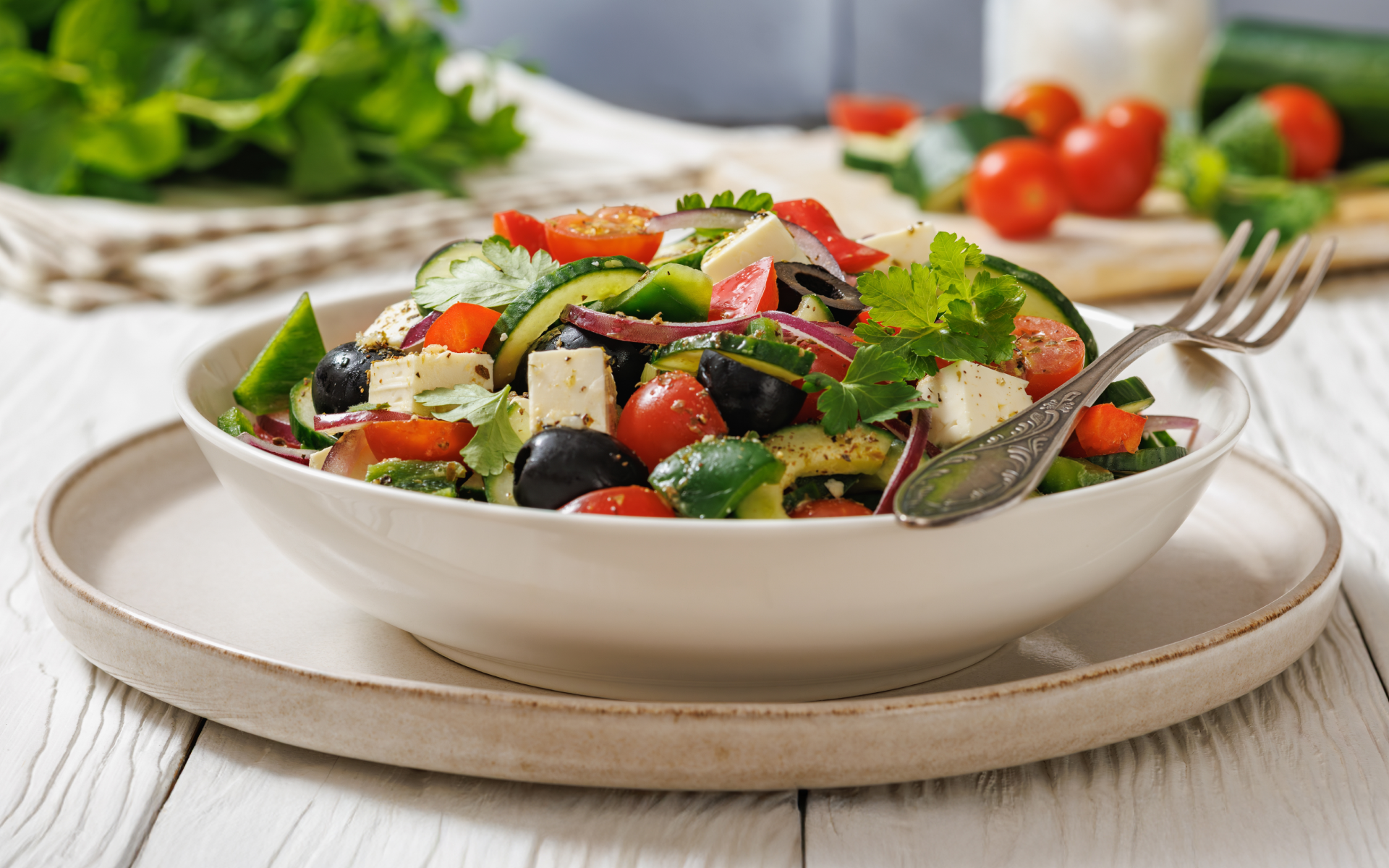Eggs have been associated with a variety of health claims over the years, including increased energy levels, fighting allergies, and reducing cholesterol. The egg diet takes these benefits a step further by linking them to weight loss.
The idea behind the egg diet is simple: eating mostly eggs every day will help you lose weight. The underlying theory is that if you’re in a calorie deficit for long enough, you’ll see significant changes on your scale. In reality though, this diet is ineffective and likely to result in malnutrition and other health issues.
How It Works: The Science Behind the 10-Day Egg Diet
The egg diet is primarily based on eating as many eggs as possible, together with a variety of vegetables and other low-calorie foods consumed during the day. Some people also add additional protein so that they’re consuming one gram of protein per kilogram of their body weight each day, while others prefer to eat larger amounts of eggs instead.
Eggs are a nutrient-dense food that’s packed full of protein, vitamins, and minerals (1). By itself, it’s unlikely to lead to weight loss, but the theory behind this diet states that you need to eat only eggs every day for 10 days in order to lose weight.
The reasoning here is simple: the egg diet leaves you with a very limited number of food options. Without many fruits, vegetables, healthy fats, proteins, or grains to choose from, the majority of the energy your body receives comes from eggs.
As calories in and calories out influence weight loss over time (if you eat fewer calories than your body uses, you’ll likely lose weight), eliminating other food groups leads to consuming fewer calories overall (2). Any variation could potentially cause a person to accidentally consume more calories than they need and negate the results of this diet.
Will Eating Eggs for 10 Days Actually Help You Lose Weight?
You may be skeptical about whether or not this diet can help with weight loss, but surprisingly there’s some science to support aspects of it.
High-protein diets have been found to be more effective at helping people lose weight than low-protein ones. The reason for this is simple: high-protein meals help you feel fuller and therefore tend to reduce the amount you eat at subsequent meals over time (3).
The most popular form of this diet restricts your caloric intake to approximately 500 calories per day, but many others suggest diets with even fewer calories. If done this way, many report losing more than 10 lbs of weight in the first week, and more than 30 lbs for an entire 28-day cycle (4).
However, there’s a catch: this diet can only provide significant results when certain conditions are met. First, eating only eggs isn’t likely to meet your nutritional needs as they’re deficient in important nutrients such as selenium, zinc, vitamin A, and vitamin D (1).
Second, you typically need to be in a modest calorie deficit of 500-1,000 calories per day for six weeks (or longer) before you start to see any substantial changes on the scale, particularly if you want to maintain your weight loss in the long term.
Eat fewer calories than this and you’ll also likely see reductions in your muscle mass, in addition to risking the dangerous side effects of malnutrition (5). No one should be consuming fewer than 1,200 calories per day without medical supervision.
If you wish to free yourself from all the extra pounds that have been weighing you down for way too long, start using the BetterMe: Health Coaching app and overhaul your entire life!
Of course, eating an entire carton of eggs at once is likely to produce side effects such as nausea and indigestion (6). That’s why most people recommend that you start your egg diet with only two or three whole eggs on the first day and work your way up to six whole eggs each day over the next week.
But even if you follow these guidelines for consuming more eggs per day, the restrictive nature of this diet means that it isn’t a viable long-term weight loss solution. Any weight lost in the short term is likely to be regained, and the diet isn’t safe to follow for very long.
When you’re following this diet it’s important to remember that eggs contain some saturated fat and cholesterol, which can contribute to cardiovascular risk factors such as blood lipid levels when regularly consumed in excessive amounts. While roughly one egg per day isn’t associated with an increased risk for heart disease, this diet involves eating many more than that (7).
Finally, sticking to an egg-only diet is unrealistic for the majority of people because most people won’t be able to maintain such a restrictive eating plan for extended periods of time.
Read more: Eating Twice a Day: 6 Benefits to Consider for Maximum Results
How Much Weight Can You Lose in 2 Weeks on the Egg Diet?
The amount of weight you can lose on this diet in two weeks can vary significantly depending on several factors, including your starting weight, metabolism, level of physical activity, and adherence to the diet plan.
Typically, people report losing anywhere from 5 to 10 pounds in two weeks on the egg diet. However, it’s important to note that such rapid weight loss may not be sustainable or healthy for everyone.
It’s always a good idea to consult a healthcare professional before you start any new diet, especially one that is as restrictive as the egg diet. They can provide guidance that’s tailored to your individual health needs and goals.
We discussed Pescatarian Meal Ideas that combine a variety of seafood options with flavorful plant-based ingredients.
Read more: How to Stay in Shape: Tips For Long-Term Health
Are Eggs Bad For You? Downsides of the Diet
If you choose to try this diet, here are some things to consider before starting out: This diet is not evidence-based or recommended by any official organization (such as the American Dietetic Association) because it’s highly restrictive and therefore unlikely to be sustainable long-term.
If you’re following this diet, it’s possible that it will help you lose weight in the short-term, but there are many risks associated with it as well.
- Malnutrition
Eggs are fairly nutrient-dense, but they don’t provide enough of the essential nutrients you need to thrive. By eating only eggs every day for weeks at a time, you’re not getting all the nutrients you need, so malnutrition can occur if you don’t eat other foods alongside them.
The BetterMe: Health Coaching app will provide you with a host of fat-frying fitness routines that’ll scare the extra pounds away and turn your body into a masterpiece! Get your life moving in the right direction with BetterMe!
- Not Enough Dietary Fiber
Eggs contain less than 0.75g dietary fiber each (8). Fruits and vegetables, on the other hand, are rich in fiber and have a variety of benefits, including helping with weight loss and lowering your risk of heart disease (9). A lack of fiber can lead to constipation, which can be dangerous over time, particularly for older people.
- High Cholesterol
There are numerous nutritional benefits associated with eating only eggs. However, some concerns have been raised regarding the amount of cholesterol-raising saturated fat that is consumed on this diet.
Depending on your own health status, you may want to consult a physician before embarking on an all-eggs diet as there are some known risks associated with consuming too much cholesterol and saturated fat.
Studies have shown that eating too much saturated fat can increase your risk of heart disease (10). While the egg diet doesn’t specify the number of eggs you should eat, it does make them the only significant part of your diet.
- Potential Gut Issues
Eating only one food is likely to contribute to changes in your gut microbiome (the bacteria in your digestive tract) and leave you with indigestion or diarrhea (11).
- Risks Posed By Undercooked Egg
Eggs are an animal product, which means they have a high likelihood of carrying bacteria that can cause salmonella poisoning. If you’re going to eat eggs as part of your diet, you should cook them completely (12)
Eating undercooked eggs can cause symptoms of food poisoning. One bacteria – Salmonella enteritidis – is commonly found in raw chicken, but it’s also in egg yolks (12).
Eggs do not directly burn belly fat. However, they’re a healthy source of protein, which can help you feel full for longer and may support weight loss efforts when part of a balanced diet. Protein-rich foods such as eggs can curb cravings and reduce your overall calorie intake, which may help reduce belly fat over time (13). Keep in mind that achieving fat loss requires a consistent calorie deficit through a healthy diet and regular exercise, not just eating eggs. Read our Steak And Eggs Diet blog post to uncover nutritional insights and explore the benefits of protein-rich meals. Eating 10 eggs a day may not be ideal for most people. While eggs are nutrient-rich and full of protein, eating such a large quantity daily could lead to an excessive intake of saturated fat and calories. An average egg contains roughly 2 g of saturated fat and 200 mg of cholesterol (8), and consuming 10 in one day could go well beyond the recommended daily limits for most individuals. In addition, it may push out other essential nutrients you’d get from a more varied diet. If you’re considering such a diet, consult a healthcare provider to ensure it is aligned with your nutritional needs and health goals. For most people, eating seven eggs a day regularly may be excessive. Although eggs are a good source of protein, vitamins, and minerals, consuming them in large amounts significantly increases your saturated fat and dietary cholesterol intake. Current research suggests that moderate egg consumption is safe for most people, but eating seven per day could potentially contribute to higher cholesterol levels and other imbalances (14), particularly if your diet lacks variety. It’s always better to aim for a diet that includes a range of foods for optimal nutrition. If you eat only eggs for seven days, you’re likely to experience some short-term weight loss due to the restrictive nature of this diet and reduced calorie intake. Eggs are high in protein and low in carbs, which may help you feel full and maintain muscle mass during this time. However, eating just eggs for a week lacks essential nutrients such as fiber, vitamins, and minerals that are found in other foods. This could lead to issues such as digestion problems, fatigue, and nutrient deficiencies. In the long term, this kind of diet isn’t sustainable or balanced, and it’s not recommended for maintaining health.Frequently Asked Questions
Do eggs burn belly fat?
What if I eat 10 eggs a day?
Is 7 eggs a day too much?
What happens if I only eat eggs for 7 days?
The Bottom Line
Despite its potential weight-loss benefits, this 10-day boiled egg diet isn’t right for everyone. Firstly, it implies that you can only lose weight if you’re eating less than 1,000 calories per day, which could be detrimental to your health. Secondly, any weight loss you experience is likely temporary. You’ll probably gain it back as soon as you stop the diet.
If you’re thinking about trying the egg diet, it’s important that you understand all of these drawbacks and what they may mean for your health in order to make an educated decision.
Ultimately, a better idea than the egg diet is following a balanced (and healthy) eating plan with regular exercise so you can reach your goals without putting yourself at risk of getting sick or developing more serious medical conditions. As always, you should speak to your doctor before making any drastic changes to your diet or exercise routine.
DISCLAIMER:
This article is intended for general informational purposes only and does not serve to address individual circumstances. It is not a substitute for professional advice or help and should not be relied on for making any kind of decision-making. Any action taken as a direct or indirect result of the information in this article is entirely at your own risk and is your sole responsibility.
BetterMe, its content staff, and its medical advisors accept no responsibility for inaccuracies, errors, misstatements, inconsistencies, or omissions and specifically disclaim any liability, loss or risk, personal, professional or otherwise, which may be incurred as a consequence, directly or indirectly, of the use and/or application of any content.
You should always seek the advice of your physician or other qualified health provider with any questions you may have regarding a medical condition or your specific situation. Never disregard professional medical advice or delay seeking it because of BetterMe content. If you suspect or think you may have a medical emergency, call your doctor.
SOURCES:
- Eggs (2020, harvard.edu)
- Fat loss depends on energy deficit only, independently of the method for weight loss (2007, nih.gov)
- Protein, weight management, and satiety (2008, sciencedirect.com)
- THE HARD BOILED EGG DIET (2019, ncegg.org)
- Calorie counting made easy (2024, harvard.edu)
- Can Eating Eggs Make You Nauseous? (2024, medicinenet.com)
- Egg consumption and the risk of cardiovascular disease and all-cause mortality: Guangzhou Biobank Cohort Study and meta-analyses (2019, nih.gov)
- Health Benefits of Fruits and Vegetables (2012, nih.gov)
- Eggs, Grade A, Large, egg whole (2019, fdc.nal.usda.gov)
- Saturated Fat (2024, heart.org)
- The Impact of Diet and Lifestyle on Gut Microbiota and Human Health (2014, nih.gov)
- What You Need to Know About Egg Safety (2024, fda.gov)
- The role of protein in weight loss and maintenance (2015, sciencedirect.com)
- Health Concerns With Eggs (2024, pcrm.org)










